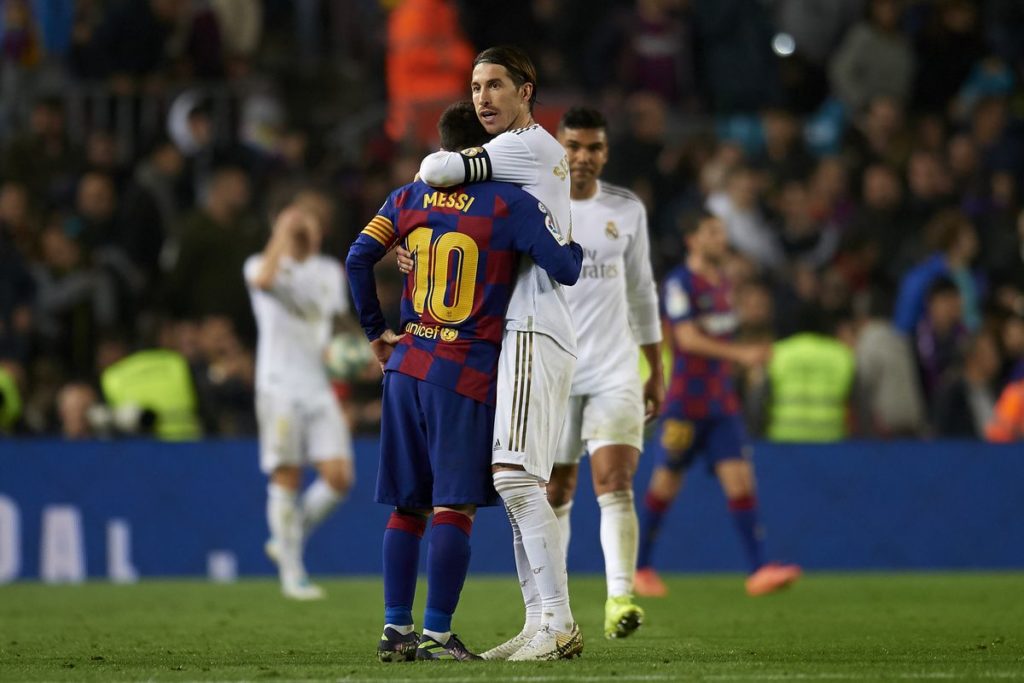The Super League fiasco

I follow European club football only casually, so this post is designed primarily to start a conversation among the more knowledgeable about what seems like a truly fascinating attempt by the Masters of the Soccer Universe to destroy many of the basic structures and traditions of the sport, in what looks like a shameless capitalism on steroids money grab. (I guess capitalism is by its nature always on steroids, which is kind of the basic underlying problem here):
European soccer was rocked by the biggest story in at least a generation when 12 of Europe’s biggest clubs announced plans to break away from the established soccer order and form a Super League. The development has the potential to remake the European soccer landscape dramatically, and there is still much that isn’t known about what’s ahead.
The basics? A group of 12 clubs from across Europe’s biggest leagues announced plans to form a new competition called the Super League. The league, should it be established, would offer permanent spots to some of the world’s biggest clubs and play matches midweek, while allowing the involved clubs to remain in their domestic competitions. This plan is currently opposed by FIFA and UEFA, the governing bodies for international and European soccer, respectively.
After massive fan blowback, the entire UK government has leaped (leapt?) into action to stop this from happening, and the whole thing seems to be falling apart, as a couple of the EPL clubs in the scheme — Chelsea and Manchester City — have already bailed.
What’s fascinating to me here is that professional sports leagues can’t really function along the lines of a free market red in tooth and claw, in which destroying your competition is a basic goal. After all, these leagues are all about preserving real competition, which means that the titans of the sport need to keep the minnows alive and at least occasionally competitive, or the whole thing won’t work.
But on the other hand . . . always the dollars:
The estimated earnings for would-be fixtures signing up to the proposed Super League are at least $425 million. Each of the would-be permanent members of the proposed Super League are being promised €350 million ($425 million) to sign up, per documents obtained by the New York Times.
JP Morgan Chase & Co. were reportedly approached to raise financing for the project that has seen FIFA back UEFA by threatening to ban any players involved in such a league from future World Cup competition.
As I understand it, the basic objection to all this is that these “super clubs” — not necessarily the best clubs at the moment, hello Gunners and Spurs — are creating a closed competition, in which all of them would automatically get to participate every year, thereby guaranteeing themselves fantastic sums in the form of television and streaming revenues.
Gary Neville, Manchester United ex-captain: It’s “an absolute disgrace” … the club owners are “bottle merchants” motivated by “pure greed.”
“I’m not against the modernization of football competitions, with have the Premier League, we have the Champions League,” Neville said during Sky Sports’ broadcast of the Premier League. “But to bring forward proposals in the midst of COVID, in the midst of the economic crisis that exists for all clubs is an absolute scandal. United and the rest of the big six clubs that have signed up to it against the rest of the Premier League should be ashamed of themselves. Are Arsenal in that? They have just drawn with Fulham, Manchester United are drawing with Burnley. … To sign up to the Super League during a season is a joke, they should deduct points off all six of them.”
The whole scheme violates a basic principle of traditional football, which is that of open competition: to participate in the Champions League, or in a club’s own top domestic league, the club has to qualify every year via its performance to be eligible to participate at that level in the following season.
The fundamental problem here seems to be that the Super League is just exacerbating the increasing inequality in the sport, in which a few clubs with worldwide followings have payrolls that are so much larger than the typical clubs in their league that the whole concept of “open competition” to win the CL or the domestic league title is becoming something of a joke. But it’s not a complete joke yet: see for example the remarkable story of Leicester City a few years ago.
American professional sports leagues have dealt with this basic problem by creating salary caps of various kinds, along with other mechanisms to maintain some sort of parity between teams (the old joke is that NFL owners are a bunch of billionaires who run their own league as if they were socialists), but no enforceable mechanisms of these sorts have yet been created for high level club soccer.
Anyway this is a story that has all sorts of significance for both the economics and the sociology of soccer in particular, but more generally for the intersection of big money sports and capitalism unchained.


